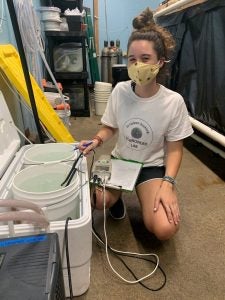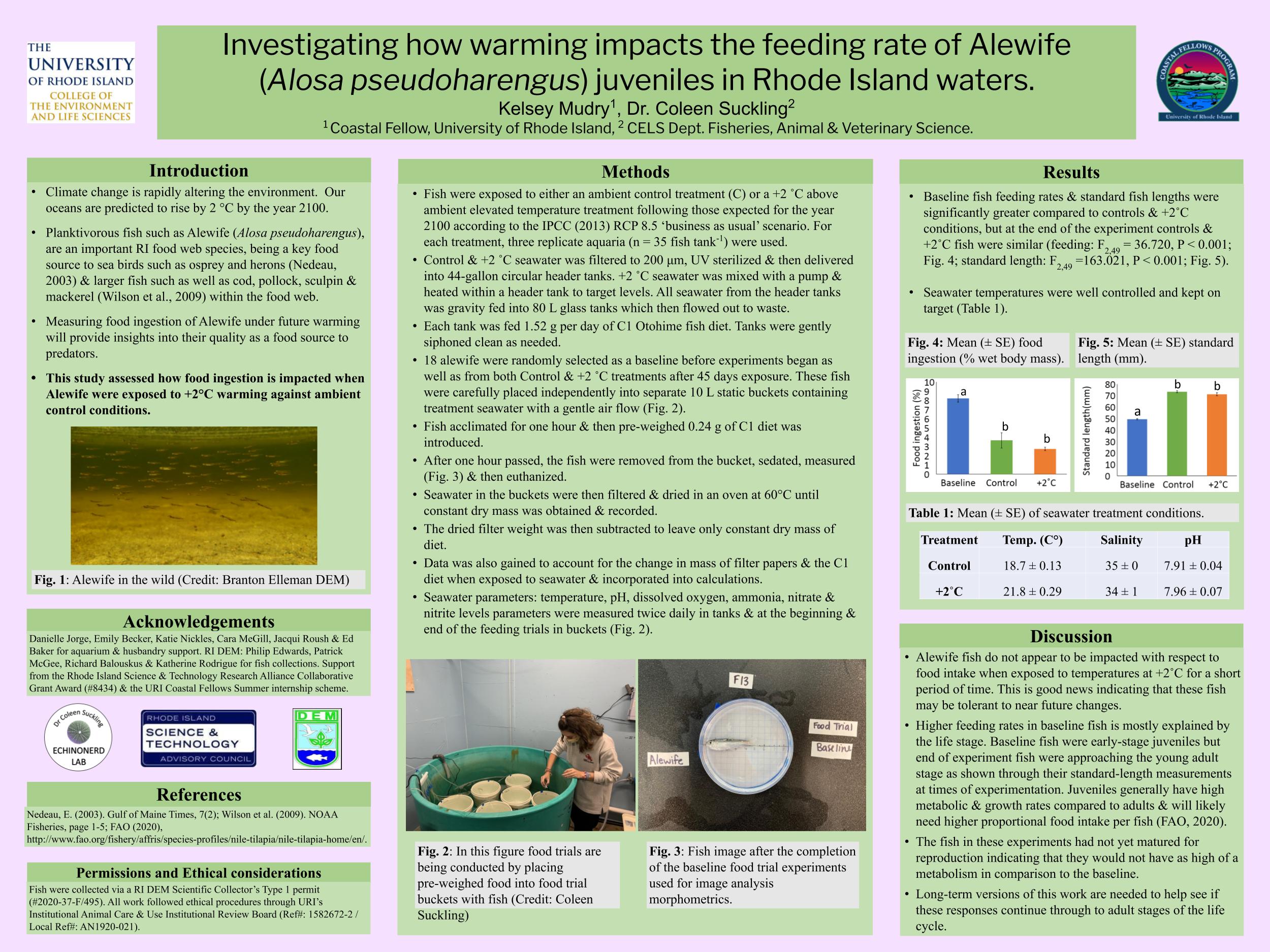Investigating how warming impacts the feeding rate of Alewife (Alosa pseudoharengus) juveniles in Rhode Island waters
Abstract:
Climate change is predicted to increase our ocean’s temperature by 2°C by the year 2100. Key species such as the Alewife, a small fish many animals feed on, could become greatly affected by this change. This study assessed how food consumption is impacted when Alewife are exposed to +2°C water temperatures compared to ambient control levels. Fish were kept for 45 days in either an ambient control or +2°C environment. Three sets of 18 fish were used for each experiment, a baseline done before experimentation, +2°C, and a control trial. These fish were then put into individual buckets and given 0.24g of food for an hour. The leftover food was then weighed to determine the amount eaten by each fish. The results showed that the baseline trials showed greater significance in food ingestion compared to the control and +2°C trials. The control and +2°C experiments were similar in significance. This difference was then explained through the fish size at experimentation. The baseline fish has a smaller standard length in comparison to the fish in the control and +2°C trials while these were similar in length. Overall, the experiment found that Alewife’s food ingestion rate is not affected by the temperature change. Long-term versions of this work would be recommended to see responses continue through adult life stages.
 Home
Home Browse
Browse Close
Close Events
Events Maps
Maps Email
Email Brightspace
Brightspace eCampus
eCampus




